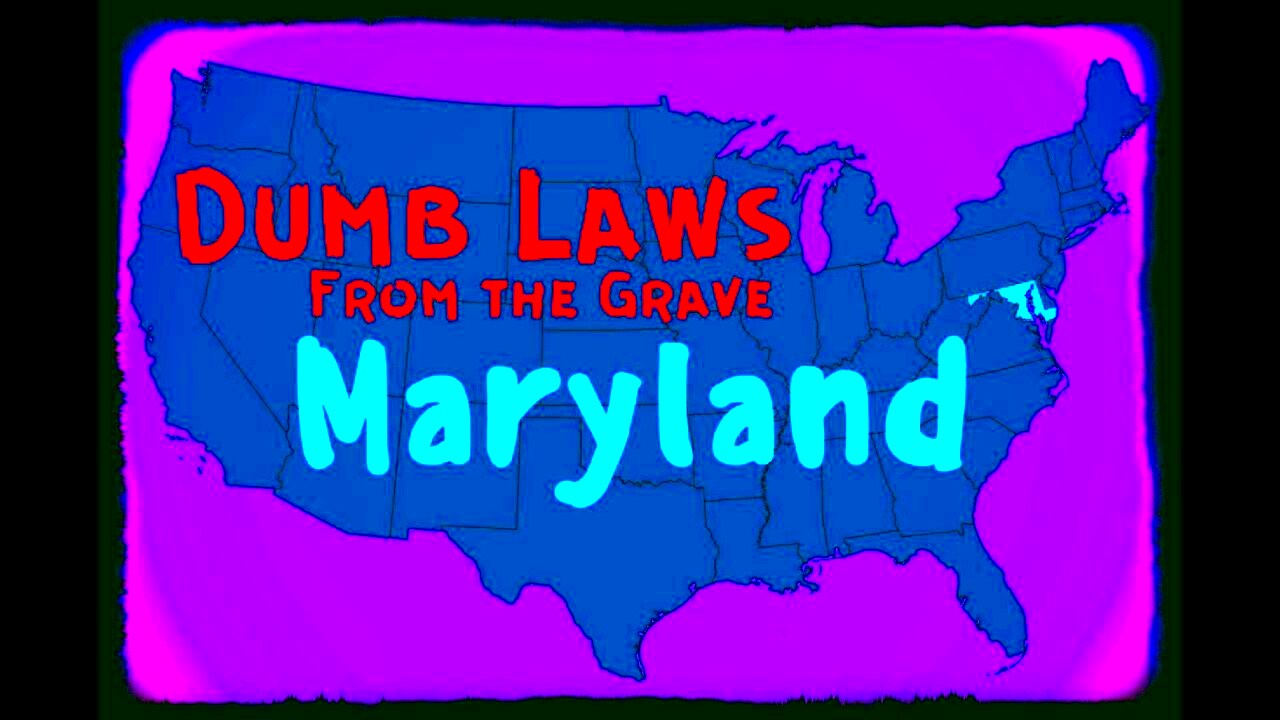Dumb Laws in Maryland You Probably Didn’t Know About
Every state has its quirks, and Maryland is no exception. While many laws are designed to keep order, some seem a bit silly or outdated. These “dumb laws” can leave residents and visitors scratching their heads. In this blog post, we’ll explore some of these unusual laws, their origins, and their relevance today. By the end, you might find yourself sharing these fun facts with friends!
Overview of Maryland’s Legal System

Maryland’s legal system is a complex framework that includes local, state, and federal laws. Understanding this system is essential for navigating the laws that govern daily life. Here are some key points:
- State Constitution: Maryland has its own constitution, which outlines the structure of government and protects citizens’ rights.
- Legislative Process: The Maryland General Assembly, consisting of the Senate and House of Delegates, creates state laws. Bills must pass both chambers before becoming law.
- Judicial System: Maryland has a tiered court system, including District Courts, Circuit Courts, and the Court of Appeals, which handle various legal matters.
Overall, the legal landscape in Maryland is designed to uphold justice while addressing the unique needs of its residents. However, within this system, some laws have emerged that might seem a bit out of place.
Examples of Unusual Laws in Maryland

Maryland is home to several laws that can appear quite strange or unnecessary. Here are a few examples:
| Law | Description |
|---|---|
| Unlawful to swear while on a highway | This law makes it illegal to curse on a public road. While it’s not often enforced, it can raise eyebrows! |
| It’s illegal to throw bouncy balls at people’s heads | While this might seem like common sense, the law explicitly states that it’s unlawful to throw a bouncy ball at someone’s head! |
| In Baltimore, it’s illegal to take a lion to the movies | This law was likely created to ensure public safety and prevent animal distractions in theaters. |
These examples illustrate how some laws can become outdated or simply reflect an amusing aspect of society. While they may not be actively enforced, they contribute to the unique legal tapestry of Maryland.
Historical Context of These Laws
Understanding the historical context of Maryland’s unusual laws can provide insight into why they exist. Many of these laws originated in different eras when social norms and community values were quite different from today. Here are some factors that contributed to the creation of these laws:
- Colonial Era: Some laws date back to the colonial period, reflecting the values and concerns of early settlers. These laws were often designed to maintain order in communities.
- Prohibition Era: During Prohibition, various laws were enacted to control alcohol consumption and distribution, some of which may seem ridiculous today.
- Societal Changes: As Maryland’s population grew and diversified, laws were sometimes adjusted or added without thoroughly reviewing existing regulations, leading to some outdated statutes.
Interestingly, many of these laws linger on the books long after their relevance has faded. They often remain unchanged simply because no one has taken the time to repeal them. Exploring this historical context helps us appreciate the evolution of Maryland’s legal landscape and the reasons behind these quirky laws.
Impact of Dumb Laws on Residents
The presence of dumb laws in Maryland can have a variety of effects on its residents. While some might laugh them off, others find them concerning. Here are a few impacts to consider:
- Public Awareness: Many residents are unaware of these odd laws, which can lead to unintentional violations. A lack of knowledge can create confusion.
- Legal Enforcement: Although rarely enforced, these laws can still lead to legal trouble if someone is cited for a violation. This can result in fines or legal fees.
- Community Identity: For some, these unusual laws contribute to Maryland’s unique character, sparking conversations and amusing anecdotes that bring people together.
Ultimately, while dumb laws may seem harmless, their existence can influence daily life in unexpected ways, from legal encounters to local folklore.
How to Challenge Unfair Laws
If you believe a law in Maryland is unfair or outdated, you have options to challenge it. Here’s a step-by-step guide on how to take action:
- Research the Law: Understand the specific law you want to challenge. Look into its origins, purpose, and any legal precedents related to it.
- Gather Support: Talk to others who may feel the same way. Building a coalition can amplify your voice and bring attention to the issue.
- Contact Local Representatives: Reach out to your local elected officials to express your concerns. They can help you navigate the process of proposing changes.
- Propose Legislative Changes: Work with your representatives to draft a bill or amendment that addresses the unfairness of the law. This may involve public hearings or committee reviews.
- Raise Public Awareness: Use social media, community meetings, and local media to highlight the issue. The more people know about the law, the more likely change can happen.
Challenging unfair laws can be a lengthy process, but by staying informed and proactive, you can contribute to creating a legal system that reflects modern values and needs.
Public Awareness and Dumb Laws
Public awareness plays a crucial role in understanding and addressing dumb laws in Maryland. Many residents are often unaware of these quirky regulations, leading to confusion and unintentional violations. Raising awareness can help ensure that people are informed and can advocate for change when necessary. Here are a few strategies to increase public awareness:
- Educational Campaigns: Local organizations and community groups can launch campaigns to educate the public about these laws. Workshops, pamphlets, and social media posts can be effective tools.
- Engaging Media: News outlets and blogs can highlight unusual laws in fun and engaging ways, making it easier for people to remember and understand them.
- Community Events: Hosting events that discuss local laws can bring communities together. Trivia nights or community forums can provide a light-hearted way to learn about these odd regulations.
By boosting public awareness, residents can advocate for necessary changes, ensuring that Maryland’s laws reflect current values and priorities.
Resources for Legal Advice in Maryland
Accessing legal advice is essential for anyone navigating the complexities of Maryland’s laws, especially if you’re dealing with unusual regulations. Here are some valuable resources:
- Maryland State Bar Association: This organization offers resources and referrals to qualified attorneys who can provide legal advice.
- Legal Aid Bureau: If you’re facing financial challenges, the Legal Aid Bureau provides free legal assistance to eligible residents.
- Local Law Libraries: Many counties have law libraries where you can access legal texts and get help from librarians who specialize in legal research.
- Online Legal Resources: Websites like Maryland’s official government site and legal advice platforms can provide helpful information and guidance.
Having access to these resources ensures that residents can get the support they need when dealing with any legal issue, including quirky laws.
Frequently Asked Questions
Here are some common questions people have about dumb laws in Maryland:
- Are dumb laws still enforced? Most of these laws are rarely enforced, but they technically remain on the books unless repealed.
- Can I get fined for breaking a dumb law? While it’s unlikely, technically, yes, you could face a fine for violating any law, no matter how silly it may seem.
- How can I find out more about local laws? You can consult local government websites, legal databases, or contact a local attorney for specific legal inquiries.
- What should I do if I encounter an unfair law? Gather information about the law, talk to others, and consider reaching out to local representatives to express your concerns.
Understanding these FAQs can help residents navigate the complexities of Maryland’s legal system while keeping a sense of humor about the quirks in the law.
Conclusion on Understanding Dumb Laws in Maryland
In summary, dumb laws in Maryland serve as a fascinating glimpse into the state’s legal history and cultural evolution. While many of these laws may seem outdated or absurd, they highlight the complexities of maintaining order within a diverse society. Raising public awareness and understanding the historical context of these laws can empower residents to advocate for change and challenge outdated regulations. By utilizing available resources and actively engaging with the legal system, citizens can ensure that Maryland’s laws reflect modern values. Ultimately, embracing the quirky aspects of our legal landscape can foster a sense of community and humor among residents, making it easier to navigate the sometimes puzzling world of law.


